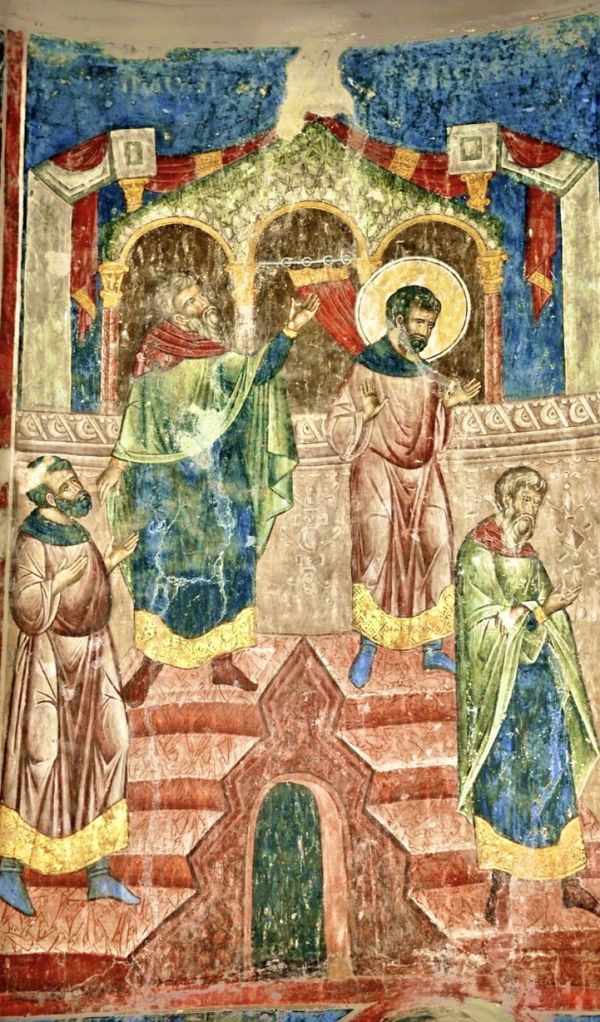(Lk 18:9-14)
Mechanism of retribution denies the essential experience of the life of Faith: ‘allowing oneself to be a saved person, living from Mystery’ - instead of the closed circle of narrow “justices” that have nowhere to go.
To introduce oneself into the newness of Christ it’s enough to have met oneself and to be sincere: a strange holiness, accessible to all.
It comes to reality, even the most intimate: we are not omnipotent in goodness; we cannot do much good, from sophistication, from ideas, from muscles.
By leaving room for the Father's intervention, we learn to trust in what we receive, more than relying on the expectations even of others, or on what is proposed and imposed.
Our concrete history can be reflected in the form of Prayer. But if dialogue with God doesn’t emerge from a penetrating perception and is satisfied with external goals, Listening becomes empty.
The spirit of “greatness” (also moral and spiritual) sinks inexorably - and into true misery: the epidermal one.
It doesn’t see the Father's exceptionality: He who transmits life.
Those who live by comparisons and have a contemptuous evaluation of the considered inferior ones, do not enjoy openings.
They remain without space or time for the action of the multifaceted being, in the variety of situations.
They misplace themselves in front of God and neighbor - denying themselves the joy of Gratis and Novelty.
In this way, they never trust in what’s more reliable than a worldview, or in their own leadership initiatives.
They do not grasp anything they do not already know, because they do not read inside.
They are in constant monologue: with themselves [but never reaching the self’s bottom] and those of their own circle.
So they don't pour out happiness - which comes from amazement.
In all circumstances, they find only a theater, an echo’s rumble of others’ voices, and around them.
Not the intimacy of exceptional and beloved person as it is.
The subject of archaic religious life is in fact “the our" - the ego.
If Jesus had asked which of the two could return home justified, everyone would have pointed to the pharisee, the reserved one apart.
In the life of Faith, the Subject is instead the Mystery, the Eternal, the Living One.
It’s He who works, by creating: and only He acts here too.
He justifies, that is, He places justice where there is none. The self-sufficient person has no need.
This is the real and royal Principle, engine of our realization and of authentic prayer-hearing, stripped of merits and pride, but capable of recovering the ‘opposite sides’.
God fears flawless liturgies and individual prayers in which nothing happens and from which one comes out without having experienced his «Creative Action» and his forgiveness.
Work not ours. Energy and sting that even in our innermost being brings us an Alliance of ‘faces’, a conviviality of differences.
In the spiritual and social life of the "polyhedron" and of the daily brief, we are enabled to translate the need for a ‘jointing-sentiment’, which the Father communicates in a broad manner, and giving us time.
Much more than a struggle between opposing worldviews: divine Justice is unprecedented, and growing - it cannot be bought by manner deeds.
To internalize and live the message:
When do I see myself as a pharisee and when publican?
How can I meet myself, by contemplating God? And while I meet others?
[30th Sunday in O.T. (year C), October 26, 2025]












